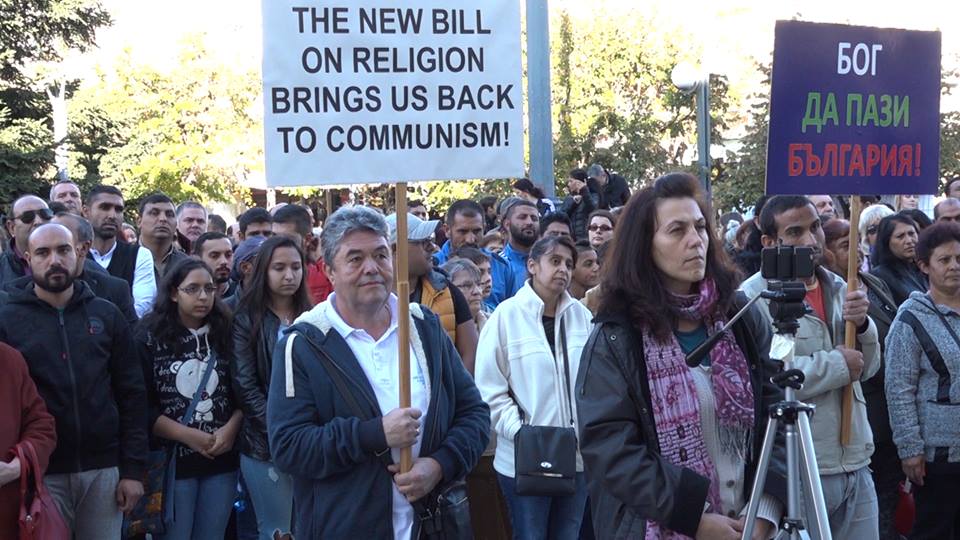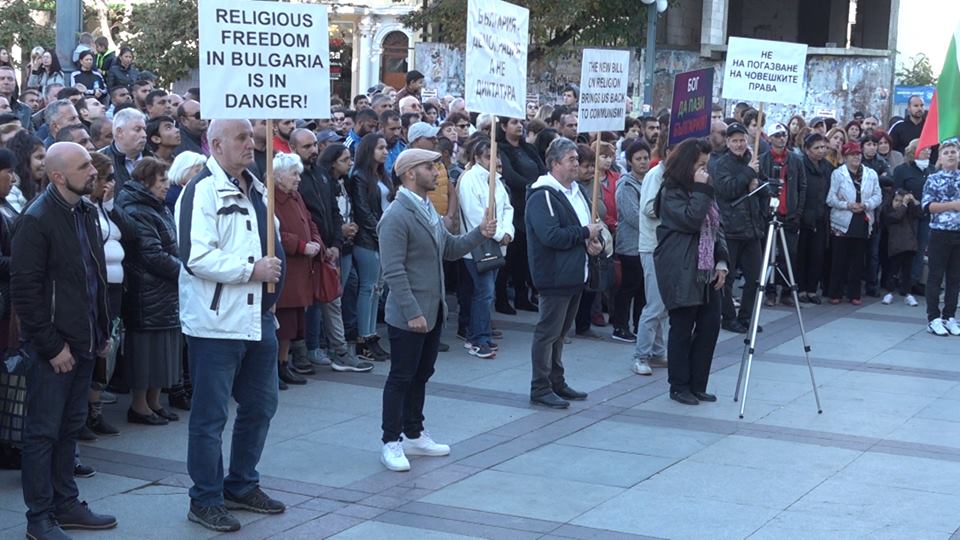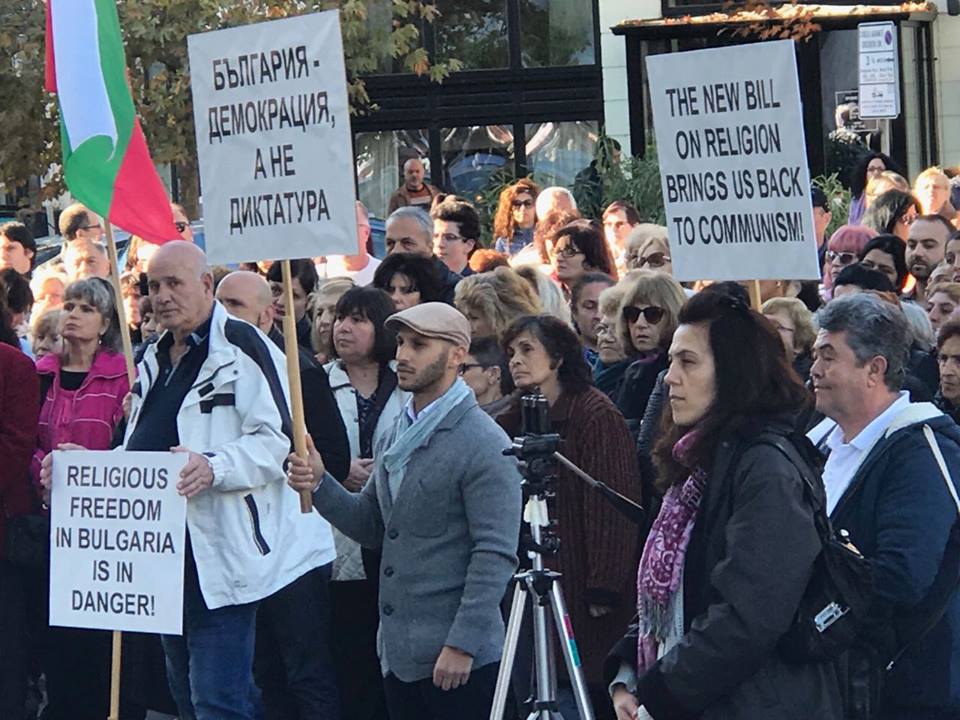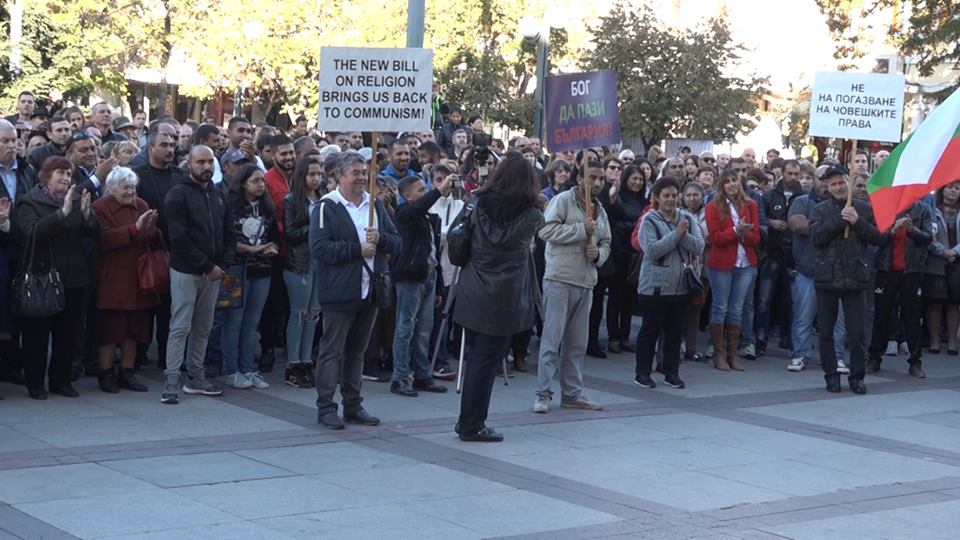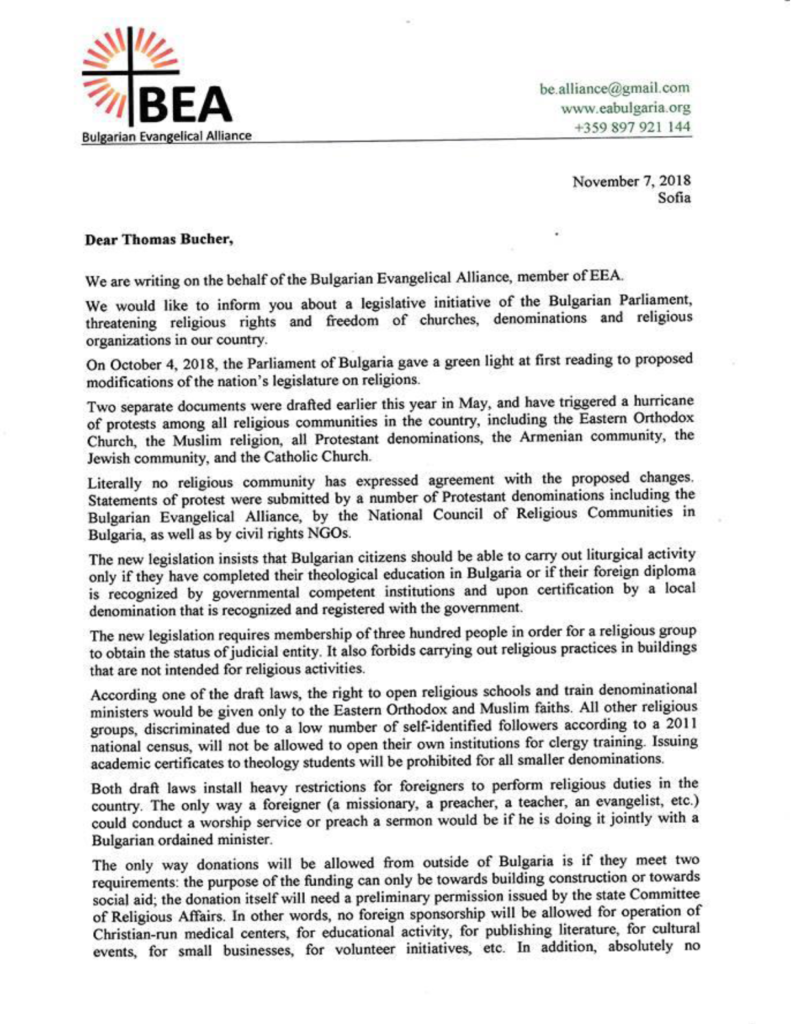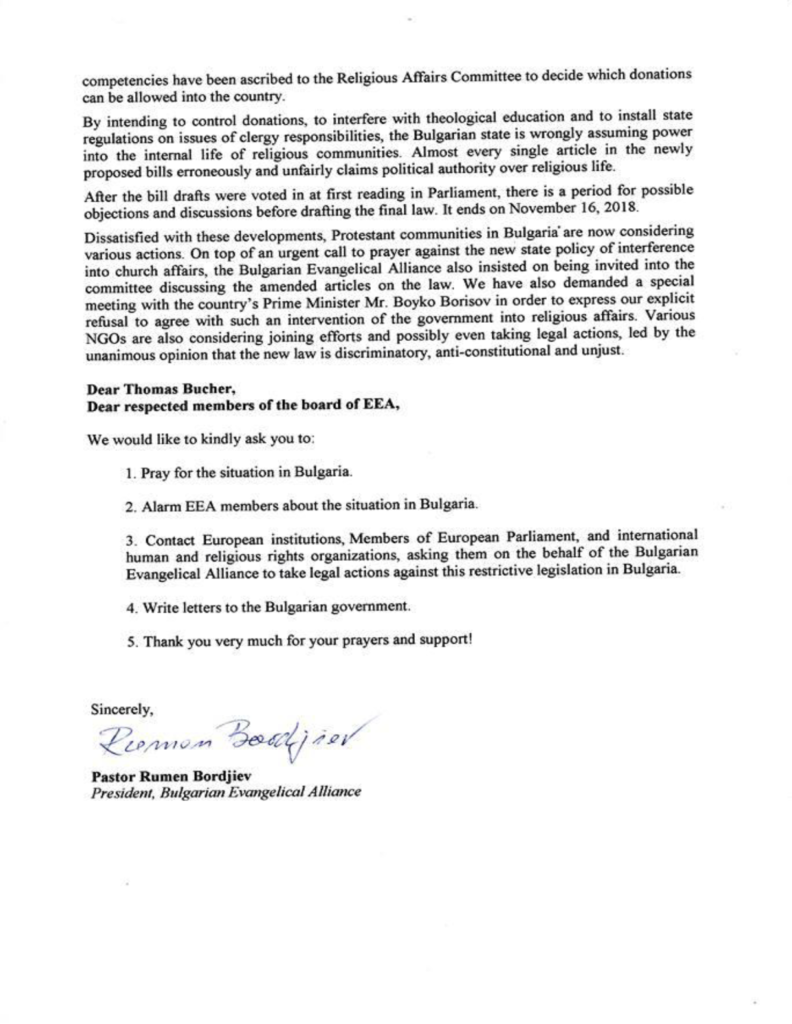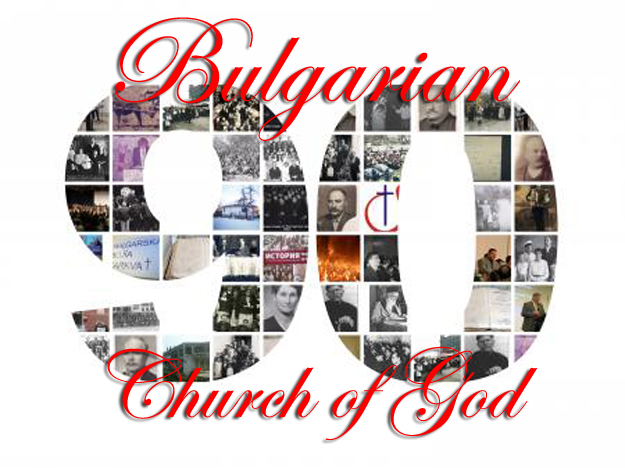BLACK FRIDAY SALE of Bulgarian Democracy Looking over the Wall
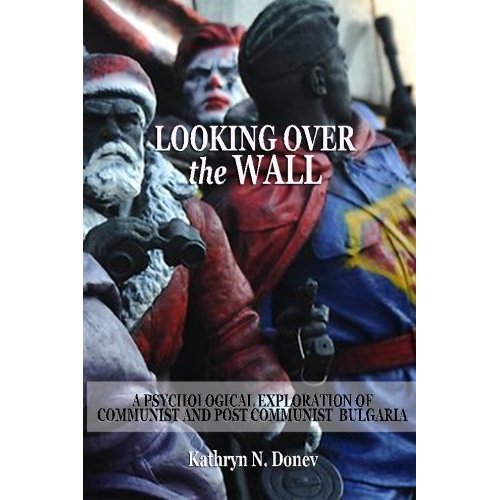 You can now understand the Bulgarian post-Communist mentality in 21st century described in Looking Over the Wall: A Psychological Exploration of Communist and Post Communist Bulgaria
You can now understand the Bulgarian post-Communist mentality in 21st century described in Looking Over the Wall: A Psychological Exploration of Communist and Post Communist Bulgaria
This book is the result of over a decade of research and personal experiences of living in Bulgaria for the past seven years. It embodies documents, articles, personal interviews and essays dealing with psychological explorations of communist and post communist Bulgaria. Along with a historical overview of Bulgaria, the author presents the development of psychotherapy throughout the country and addresses future concerns for the state of counseling within a post communist context. Furthermore, the author examines the Pentecostal experience of the Bulgarian evangelical believer drawing on a paper presented at the 36th annual Society of Pentecostal Studies Conference. As well included is original research which develops a theoretical account of the sequences of internal motivation in addition to student survey results regarding counseling practices from the first Master’s in Chaplaincy Ministry Program in Europe at the Bulgarian Evangelical Theological Institute.
All books by Cup&Cross on SALE
Final clearance sale for the year with new titles coming up in early 2019
CLICK the picture below to view all titles on Amazon.com
Evangelical Protest Against New Religious Law in Bulgaria
Christian Greetings,
On November 11, 2018 all evangelical protestant churches in Bulgaria, along with representatives of the Catholic Church and other Christian communities, joined together before the Bulgarian Parliament in the capital Sofia in an open protest against a new religious law. The government restrictions imposed by this new religious bill, which will be voted soon is outlined below. Also included with this email is the open letter by the president of the Bulgarian Evangelical Alliance to evangelical organization around the globe for their prayers and support.
(1) Funding which does not originate from Bulgaria will become illegal
(2) All sermons / messages must be preached in Bulgarian only. Using other languages in a sermon will be illegal (as funny as this may sound though it is now a serious legal matter, the bill makes no provisions for the Pentecostal faith the practice of which includes speaking in other tongues)
(3) Preachers / speakers must have mandatory Bulgarian education (exact level of education is not specified in the bill)
(4) Sermons cannot be against any legally established formulations i.e. governmental issues, political establishment, gender and lifestyle definitions. Preaching against other faiths will be considered extreme/fanatic characterization
(5) Buildings, except specifically registered for liturgical purposes (i.e. temple, sanctuary, etc.), cannot be used for church services. Church services cannot be held in homes or private properties
(6) Minors (individuals under the age of 18) cannot be evangelized / proselytized
(7) New church registration cannot be obtained legally through a court any longer. They will be a subject of local municipalities only after approval from the government Directorate of Religious Affairs and must have a minimal membership of 300 people
(8) Open air events are subject to points (3), (4) and (6) above. They can be held only on special holidays after an explicit permit from the local government. The use of sound systems is explicitly forbidden
(9) Government subsidizing for pastoral salaries remains unclear for faith confessions under 1% of the general population. Currently, all evangelical denominations in Bulgaria do not add to even 1% of the population
(10) If the legal provision is accepted on November 16, 2018, it will include fines under the new law as following: 5,000-10,000 Euros for first offense, 10,000-20,000 Euros for second offense, of buildings and banning of the entire denomination.
Sincerely,
Dony K. Donev, D.Min.
Read more here:
- EEA calls to action in support of the Bulgarian Evangelical Alliance
- Religion Funding Law “Sad Reminder of Communist Past”
- New Controversial Law on Religion to be Voted in Bulgaria
- Bulgarian law to ban all foreign preachers
- New Bill of Religions Bans Foreign Support for Churches in Bulgaria
- Bulgarian evangelicals alarmed by restrictive and discriminative bill on faith minorities
Rodney Howard-Browne in the Church of God Ministry Center in Bulgaria
The Bulgarian Church of God Celebrates its 90th Anniversary
Excerpt from “Spirit-Empowerment of the Poor in Spirit: Dr. Nicholas Nikolov and the Establishment of the Bulgarian Assemblies of God in 1928” presented at the Missions & Intercultural Studies Interest Group, 47th Annual Meeting of the Society for Pentecostal Studies (Lee University, 2018)
In 2018, the Pentecostal Union in Bulgaria is celebrating 90 years since its establishment. The organization of the Bulgarian Assemblies would have been impossible without the leadership of Dr. Nicholas Nikolov. But while Nikolov successfully fulfilled the mission set by the American Assemblies of God, the larger part of Bulgaria’s young Pentecostal movement remained unregistered and mainly underground. Recently published intelligence reports by the Communist Regime propaganda placed the beginnings of the Bulgarian Church of God in 1922-1924 – much earlier than the separation from the officially organized Pentecostal churches. The establishing meeting of the Bulgarian Pentecostal Union in 1928 simply reaffirmed the already existing division among Bulgarian Pentecostals and the beginning of the Bulgarian Church of God. The year 2018 rightly marks its 90th anniversary.
Unregistered Pentecostal Churches and the Underground Bulgarian Church of God
The larger majority of Pentecostal churches in Bulgaria remained reluctant to join the Pentecostal Union with particular skepticism toward registering with the government in 1928. Many perceived the new organization with 20 members led by Nikolov as betraying the original Pentecostal message brought by Zaplishny and Voronaev. As the older Pentecostals in the country saw it, a young man sent from America, took a dozen of believers and formed a new organization – nothing others have not done before him.
Almost immediately a prophetic word was given to Spas Stefanov,[1] in whose Sofia home Pentecostal meetings were held. The prophecy was from the book of Isaiah 8:10-12: Say ye not, a confederacy[2] [union], to all them to whom this people shall say, a confederacy [union]; neither fear ye their fear, nor be afraid.
No more than a fortnight later, the largest recorded earthquake in Bulgaria occurred and was immediately seen as divine confirmation; especially when taking under account, that its epicenter in Chirpan, and the close-by Plovdiv and Mirichlery, were renowned cities of Pentecostal Evangelical work at the time. The effect was much like the Great Earthquake of San Francisco during the Azusa Street Revival. Another confirmation to the prophecy was seen during the following winter when the Black Sea froze right at the headquarters of the newly established Pentecostal Union in Bourgas.
With a confirmed prophecy in hand, the majority opposing the new organization was lead by the seven presbyters ordained personally by Dionisey Zaplishny during his first visit in Bulgaria. They accented on the leadership and gifts of the Spirit in the unregistered (free) churches without manmade organization and order. Most of the groups that united around them were in Northern Bulgaria in the cities of Pleven, Lovetch, Etropole, Vratsa, Vidin, Montana, Nikopol, Troyan, and village churches near Ruse, Razgrad and Yambol. Presbyter Stoyan Tinchev formed and led the largest group among them, which grew into an underground movement during the Communist Regime and formed the Church of God in Bulgaria.
Boris Grozdanov, who held direct communication and was personally visited by Swedish Pentecostal evangelist Axel B. Lindgren, led groups in Verdikal/Bankya near Sofia and Pernik (both places visited often by Zaplishney).[3] Many more were located in Southern Bulgaria, between Stara Zagora and the Turkish border at Malko Tarnovo, led by Ivan Broshovsky of Yambol.
[1] Father of pastor Toma Spasov, who was sentenced and deported in the 1980s by the Communist Regime with two other Church of God pastors for leading unregistered underground churches.
[2] Translated in the Bulgarian Bible as “union” and resembling the newly established Pentecostal Union.
[3] Letter from Lindgren instructed him to hold the pure teaching and stay out of organized religion. Recorded December 14, 1930 in Protocol 14 of Minutes of the Executive Committee of the Evangelical Pentecostal Churches in Bulgaria (Personal archive of the author).
Recommended Reading:
- Autobiography of Pastor Dionisey Zaplishny (cir. 1927)
- Dinko Zhelev, former president of the Bulgarian Pentecostal Union (personal archives)
- Diulgerov, D.V. (with statistical data submitted by Dr. Nicolas Nikolov) in Annual Publication of the Theological Faculty at Sofia University – Sofia, 1932
- Donka Kinareva: Family Chronicles by J. Markov (unpublished)
- Joseph Gourbalov, Birth and Early Historical and Theological Development of the Baptist Movement in Bulgaria, 2002
- Letter from Axel B. Lindgren to Boris Grozdanov (April 10, 1930)
- National Archive Records, Ruse – Bulgaria (Archive collection, F319K)
- Nikolov, Nicolas and Martha. Ministerial files, personal papers and family correspondence (1924-28)
- Paul Gourbalov, Birth and Development of the Evangelical Pentecostal Movement in Bulgaria (manuscript)
- Travel Diary of Marry Zaplishna (cir. 1924)
You are LEE
Your Website Does Matter
Even if you’re fully engaging your members in church, you still need a church website. Why? According to Grey Matter Research, 17 million Americans who don’t regularly attend church visited a church website. While most are searching for church hours or programs, 26% are streaming video and another 26% are streaming audio. So yes, a website is vital for reaching more people and increasing your members.
So how do we do it? Why the know-how in the technology used should not be disclosed as public domain, several strategic points in the building of the actual web property, web presence and web strategy may be of some help to readers who are working on a Pentecostal web project of their own:
- As a main priority, the search engine optimized web platform was designed to publish all past and future articles in an compatible digital format
- A user friendly magazine-like design provided the options to publish individual articles and/or embed complete issues of the magazine in a PDF format
- Database pagination for larger volume of simultaneous users and database storage was implemented to server the enormous content volume (some 200Mb of database just for the starting archive of articles)
- SEO compatible web SCHEMA architecture was specifically designed with reader’s search engine experience in mind. The difficulty here was not providing volume to the search engines, which the article archive had in abundance, but sorting and selecting from thousand of search key words and phrases in order to attract the specificity of the audience
- An advanced administrative panel aided the day-to-day backend operation of the web platform
- Media embed (audio, video and live stream) was enabled as automated post attachments carried on both the website and social media
- Finally, to increase user involvement, the social network module included auto publication, audience engagement, feedback and discussions which were seamlessly integrated between many social properties while being stored serverside for the use of the platform.
From a purely technological standpoint, however, there are several immediately necessary measures, which are due. The free registration via social login and auto translation of the article database were both envisioned in the platform from its genesis. Their immediate implementation will open this invaluable web resource to the global community of Pentecostal scholars worldwide. With this move, the SEO optimization not only of generated content, but also social media archives (by rule disregarded by most search engines as per their privacy regulations) will open a massive amount of organic back linking, which will reaffirm the importance of the website as a global community building tool.
Furthermore, the current web platform offers several valuable opportunities for marketing the product, which began as a printed publication. The way it was designed and structured, the whole database is completely printable both as a periodical and volume/series format. Using this current technology makes printing once again an inexpensive and invaluable option, as potential revenue is not only sufficient to cover the cost of printing, but also to invest in further development of the web platform itself.
Finally, the building of a Pentecostal community on the internet with the resources of higher academia is perhaps the single and most important attempt to merge Pentecostal theology and praxis within the last couple of decades. Thus, recovering not only the grass roots of Pentecostal scholarship, but remerging the purity of doctrine with the ministry of the church.
Religion Funding Law “Sad Reminder of Communist Past”
The leaders of Bulgaria’s three biggest political parties have drafted a bill on religious affairs that, if passed, would spell disaster for the country’s minority Catholic and Protestant Churches. Not only would the new law cut off State subsidies to confessions such as these that represent less than 1% of the population, but both funding from overseas and permissions for foreigners to celebrate religious services would be suspended as well, leaving the Catholic Church “in a very difficult situation”, in the opinion of Christo Proykov, Greek Catholic Bishop of Sofia and President of the Bulgarian Bishops.
As Radio Bulgaria reported last week, the bill – sponsored by the conservative GERB, the Bulgarian Socialist Party, and the ethnic Turkish Movement for Rights and Freedoms – seeks to “prevent interference of foreign countries, institutions and persons into religions and religious affairs”. The real target of the draft law, though, is theagents of radical Islam, for which reason “placing all confessions under the same common denominator is an act of discrimination”, according to Atanas Slavov, Professor of Law at the University of Sofia.
In an interview with SIR, Proykov also called the draft legislation “discriminatory” and said it would “place some confessions in a privileged position to the detriment of others… left without vital financial support, especially donations from abroad”. Specifically, the only religions to benefit from the new proposal would be Orthodoxy and Islam, which represent 60% and 8% of the population respectively, compared to the Catholics, at 0.66%, and Protestants, at 0.87%. Beyond the funding, too, the stipulation that foreigners who wish to celebrate religious services be authorized by the Directorate of Religious Affairs “further complicates the situation”, according to Proykov, “as the majority of Catholic priests in Bulgaria are not Bulgarian citizens, and all priests, including Bulgarians, have completed their academic studies abroad because in Bulgarian there are no faculties of Catholic theology”.
“We cannot strip a confession of its rights just because it represents a minority”
Even though they would benefit from the new law – and that to the tune of some 7.5 million and 5 million euros in 2019, respectively – the Orthodox and the Muslims have also expressed reservations about the legislation, with Orthodox spokesman Father Nikolay Georgiev going so far as to hint at his denomination possibly sponsoring the Catholic Church in the future. “We cannot strip a confession of its rights just because it represents a minority”, said Georgiev. In the meantime, Slavov has urged politicians “to reflect” before making a final decision, recalling that “reaching a balance between national security and religious rights requires serious dialogue”, a point that requires even more attention now that Bulgaria holds the rotating presidency of the Council of the European Union.
Revealing himself to be “deeply worried” by the“dangerous and infelicitous” draft legislation, Proykov added: “The legislative proposal is a sad reminder of a bygone Communist past, which we believed would no longer return”. “The text of the draft law on religious communities has many controversial aspects that fail to take into account the particularities of each confession”, lamented the Bishop of Sofia.
Files of secret communist agents who spied on the Bulgarian Church now released
October 20, 2018 by Cup&Cross
Filed under Featured, News, Publication, Research
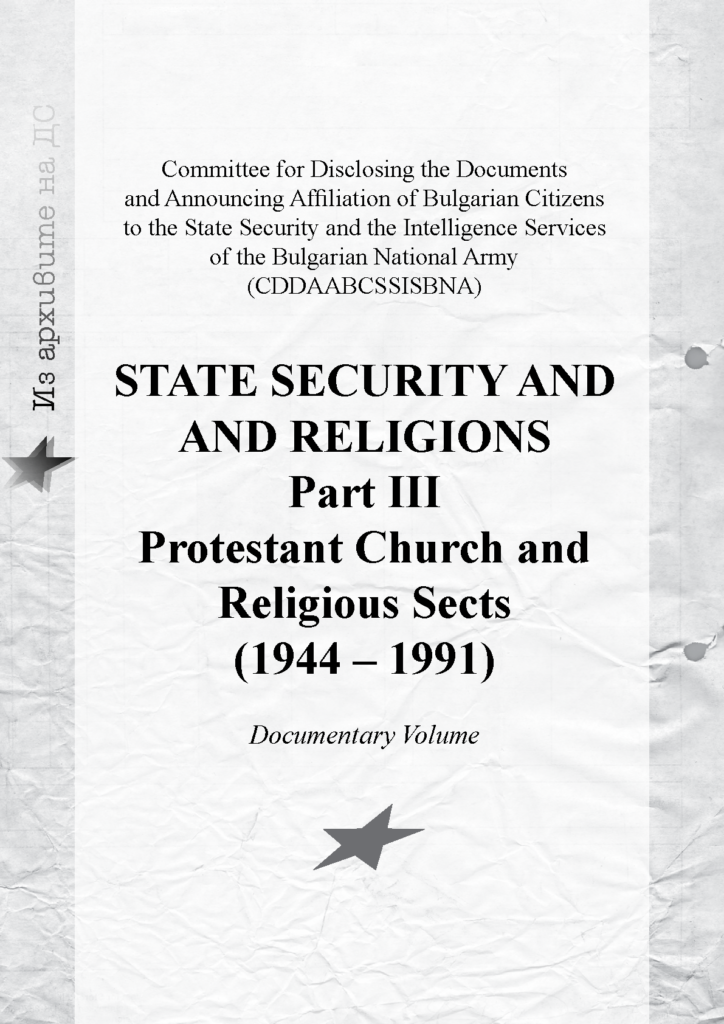 In recent attempts for legal transparency and reconciling with history, the Bulgarian government has begun releasing thousands of secret dossier files from the Communist era. While searching through tons of political and economical archive materials, the specially appointed Dossier Committee has been working on publishing a three-part volume containing dossier files on churches and religious communities. These top secret files now show how the communist regime persecuted virtually all faith organizations using information from a massive network of secret agents to infiltrate them within. Often appointed to key positions within the religious group, those agents procured the communist agenda to the smallest detail in securing a total control over believers and churches on part of the government. The first published volume dealt with the mainline Eastern Orthodox Church of Bulgaria, while the second volume published dossier files related to the Muslim religious community in the country.
In recent attempts for legal transparency and reconciling with history, the Bulgarian government has begun releasing thousands of secret dossier files from the Communist era. While searching through tons of political and economical archive materials, the specially appointed Dossier Committee has been working on publishing a three-part volume containing dossier files on churches and religious communities. These top secret files now show how the communist regime persecuted virtually all faith organizations using information from a massive network of secret agents to infiltrate them within. Often appointed to key positions within the religious group, those agents procured the communist agenda to the smallest detail in securing a total control over believers and churches on part of the government. The first published volume dealt with the mainline Eastern Orthodox Church of Bulgaria, while the second volume published dossier files related to the Muslim religious community in the country.
The third volume, that was published just last week, contains information about more marginal religious group in Bulgaria in the period 1945-1990. Among them are not only protestant churches, which were officially registered by the Government, but also the unregistered and outlawed by the communist regime Bulgarian Church of God, which existed in the country since the early 1920s. This newest published volume contains over 800 pages of government information telling the story of how the Bulgarian Church of God was able to survive the extreme persecutions of the Regime. While the several hundred published dossier files marked top secret are only the tip of the iceberg, a number of interesting facts from the church’s history are obvious even at first glimpse. Some more prominent among them are:
- The beginning of the Pentecostal movement in Bulgaria is described by the dossier files in detail around 1919-1921
- The beginning of the Bulgarian Church of God showed as a result from events that took place in 1922, 1926 and finally in 1928, thus giving the church its rightful place in history as a 90-year old religious organization
- The dossier files further contain detail information assembled by communist secret agents among the believers about the early structure, locations and operation of Church of God communities in Bulgaria
- The construction, process and results of the infamous Pastor Trial that took place in 1948-1949 and virtually beheaded Bulgaria’s evangelical denominations by putting their leadership of in prison labor camps
- The development of church organizations, service order, religious rituals as well as changes in church leadership are recorded from the early 1950-1960s and beyond
- Specific names of various mission organizations, some of which were closely watched by secret communist agents, including: Eastern European Slavic Mission, Underground Evangelism, Operation Mobilization, etc. Because of the government actions taken against them, their access to the country was highly restricted and at times completely banned
- Specific names of mission workers who first established contact with the Bulgarian Church of God in the 1980s are recorded, among which: Lambert Delong, Paul Lauster, Timothy (Tim) Cornet, etc. Most of them were closely watched by top secret communist agents who classified them as “enemy elements with destructive foreign agenda”.
- There are numerous mentions of agent pseudonyms and their government issued ID numbers who were ordered to identify, study and report on the organizational structure of the Church of God, its key leaders and their agenda toward the people of Bulgaria.
- Specific strategies were implemented regularly to keep the Bulgarian Church of God and its leaders in check such as:
- stopping of church services for undefined periods of time
- arrest of ministers and members to limit their ministry activity
- anonymous letters to both family and church members in order to compromise key leaders who did not comply with government orders
- “casual” street meetings with agents in order to compromise them before church members key church leaders as “informers”
- attempts to assign one or more “turned” ministers or church members to keep a close watch on key leaders’ activities and report them to the government
- ban on being hired to any other jobs except manual labor effective on ministers, their spouses and in many cases close relatives
- ban on their children to attend certain schools
- “Relocation sentences” – at least three known Church of God leaders in the 1980s were sentenced with relocation to labor camps with no visitors allowed for a period of three years
- Finally, these recently released top secret government dossier files contain the story of how the Bulgarian Church of God was able to survive the communist regime and enter a state of spiritual revival and continuous growth in the 1990s and beyond.
The hundred of pages with secret dossier files have shed light upon one of the hardest times of the Bulgarian Church of God in its 90-year long history. By the 1980s, the government persecution had successfully shrunk its membership to about 800 nationally banning it as an illegal sect. Its leaders were constantly called to “police talks” and given extremely restrictive “advisory notices” on how to perform their religious duties especially in regard to newcomers and minors. The simple explanation is that those government actions were purposed to destroy the Bulgarian Church of God and make it extinct. Until God Himself through a miracle took the Berlin Wall down…
There are a number of worrisome conclusions from this recently published volume. First, the 800 pages hardly cover everything that the Regime had done or was planning to do with the Church of God in Bulgaria. Secondly, from multiple documents dated in the 1990s, it becomes clear that the government agenda against the church did not stop with the Fall of the Berlin Wall; which raises a question of how many of its secret agents are still actively working against or within the Church of God in Bulgaria. Finally, now that these documents are legally available to the public, we have committed to study them in order to produce a detailed catalog of names, dates, places, which will provide a clearer picture of the ministry and development of the Bulgarian Church of God during the times when it was outlawed and persecuted by the communist regime.
Introduction
The documentary collection ‘State Security and Religions’ – Part III – ‘Protestant Church and religious sects’ is a volume of the sequence ‘From the archives of State Security’. It consists entirely of documents, kept in the Centralized Archive of the Committee for Disclosing the Documents and Announcing Affiliation of Bulgarian Citizens to the State Security and the Intelligence Services of the Bulgarian National Army.
State Security and religions is a theme which will always be debated in public and will always provoke researchers to seek new, unknown facts, which will enrich the recent historical past connected with the clergy in Bulgaria in the period 1944-1991.1
All religions and sects on the one hand, and the people’s power on the other hand, has their own specific relations established on the basis of the constitutions from 1947 and 1971, the Law on religious denominations2 dated 1949 and the influence of the State Security. The main mediator and connecting element in the relations between the religious communities and the state is the Religious Denominations Directorate, which at various points of the period under consideration passes from the Ministry of Foreign Affairs to the Council of Ministers and vice versa, depending on the role it has to play in solving a given issue. Of course, these relationships are well monitored by the State Security, which in most cases is at the right place and time.
The chronological approach is used in the arrangement of the documents. They are thematically divided into two chapters, and each one of them is separated into several subtopics. The first chapter of the collection includes general papers on Protestant denominations, the Slavic Mission, the Mission to evangelize the communist countries, the Church of God, Seventh-day Adventists, the Adventists – Reformers, the Baptists, the Congregational Church, the Methodist Church, the Pentecostal Church, and the Tinchevists.
The second chapter of the collection includes papers referring to the different sects and religious denominations such as: The White Brotherhood – Danovitsts, Ustabashev, The Bible Speaks, ISKCON3, the Jehovists, the Rose Cross, the Mormons and others.
It is quite logical that after September 9, 1944 the Evangelical denominations began to be seen as conductors of Western influence, and pastors and laymen – as agents of foreign intelligence. Thus, in a report on the work on Evangelical sects of August 1946 it is mentioned that American intelligence in Bulgaria attaches great importance to Evangelical denominations. ‘The American Intelligence uses the Evangelical denominations in its intelligence service the following way: for increased propaganda amongst the Evangelists of Americanism, carried out most diligently, regularly by the pastors of these churches, who are reactionary to the Fatherland Front, and in particular to the Communists. The pastors, who are mostly English and American alumni and adherents, innocently, and some of them and very badly, speak in their religious talks about the fight against the irreligious, fight against those who rule with violence, blood, terror and bring misfortune and darkness. In the sermons the pastors proclaim a crusade against socialism, uniting everything reactional on a religious basis.’ It is reported that ideologically and managerially, the Gospel denominations were until recently under the German governing board and then officially passed Society for Krishna Consciousness under American one. Thus, all their existence and activity is in the hands of the US intelligence. The report emphasizes that the State Security Service has found positive evidence that all pastors and individual leaders of the American Sects are zealous agents of the US intelligence, conductors of the American propaganda among the evangelicals, and ‘excellent intelligence collectors of different nature’. Based on the surveys and observations, it is clear that US intelligence pays close attention to youth organizations from which prospective agents may eventually be recruited. The opinion of the operative worker responsible for the Evangelical sects is that the sector is not well developed. State Security’s collaborators are very weak and small in number. The operational activities of agents have been reported as poor. From the observations made and the impressions obtained, the operative worker offers a set of activities for future work. An operative worker is to be commissioned to the Ministry of Foreign Affairs and Religions to closely monitor the administrative and political development of Evangelical denominations; collaborators to be recruited – pastors; to centralize the activities throughout the country and help to be provided. Measures are to be taken with regard to the restriction of the dissemination activity and propaganda, which can be done by not releasing paper to print their religious ‘scum’; restricting travels; more serious censorship of the newspaper ‘Zornitsa’; limiting Sunday schools (See Document No 4 of the Collection).
In an information bulletin of May 1948, it is mentioned that the propaganda by the Evangelists is conducted in a very subtle way. Foreign intelligence, the Anglo-American respectively, uses Evangelical missionaries and pastors to build spy networks in the military, political, and cultural sectors in countries where the Evangelism is spared (see Document No 9 of the Collection).
Given the fact that repeatedly in State Security documents, implications are made on the spy and propaganda activity of the pastors, it seems perfectly normal to start offensive activities against them. In a proposal for the realization of the development of Evangelical pastors who have been implicated in a currency-dollar affair and anti-popular spy activity of July 20, 1948, it is planned to detain those pastors entering the Supreme Council of Evangelists who have developed anti-national spy activity, and have informed foreign missions on the military and political status of the People’s Republic of Bulgaria. Fifteen pastors have been detained, accused of ‘forming an intelligence network for the benefit of a foreign country’; ‘spreading malicious rumours and slander’; ‘making currency speculation’. The proposal for the closure of an investigative case of 5 January 1949 provides for the organization of a central public process with the participation of about twenty leaders of sects and the composition of the Supreme Council of the United Evangelical Churches. In addition to the central process, four separate sect processes should be organized in which the secondary actors are exposed and convicted. The persons to be included in the central process are identified as well (See Document No 18 of the Collection). By virtue of Sentence No 118 dated 8 March 1949, four life sentences are imposed against the Evangelical pastors; four sentences of fifteen years’ imprisonment; three – of ten years’ imprisonment, and others of varying lengths (See DVD Document No 26).
In a reference to the religious and hostile activity of the Protestant clergy and sects of May 1955, it was found that the objects which are in development for active religious activity are: ‘fanatics in their religious convictions and lead religious and hostile activity and propaganda against the People’s Power’. It is reported that the agents used for developing the objects are not trusted by them, as a result of which the collaborative apparatus in this respect is not able to provide complete development and monitoring. It is recorded in the document that after September 9, 1944, the Evangelical churches adopted an open course of irreconcilable struggle against the people’s power. Led by and inspired by imperialist intelligence, they create the ‘United Evangelical Church’, which is an organized anti-communist bloc for resistance of the people’s power (see Document No 28 of the Collection).
An important moment in the existence of Protestant churches in the country is their registration under Art. 16 of the Law on Religious Denominations, according to which: ‘The central governing bodies of religious denominations are obliged to register at the Ministry of Foreign Affairs, and the governing bodies of the local divisions – at the local people’s councils, with the names of all the members of the same governing bodies’. In spite of the delay of several years, at the end of 1962, the Committee on Church Affairs, together with the People’s Councils Department at the Council of Ministers, issue an instruction for the registration of the Protestant sects and the White Brotherhood community, the Danovists.
Through a circular letter to all headquarters of the Ministry of Interior in the country dated 18 January 1963, the registration of religious sects is mentioned. The document informs that the Religious Affairs Committee at the Ministry of Foreign Affairs and the People’s Councils Department at the Council of Ministers have come out with a circular letter, which provides instructions for the registration of the religious sects. It is warned that fraud attempts are possible and, when such ones are established, timely actions are to be taken (see Document No 30 of the Collection). Through an explanatory note on the final registration of the Protestant sects, information is given on how the re-registration will take place. It is mentioned that those who are not approved, cannot exist as church organizations in the future (see Document No 32 of the Collection).
In a 1972-1973 report on the implementation of the decisions of the Secretariat of the Central Committee of the Bulgarian Communist Party dated 24 January 1967 concerning the further improvement of the atheist work of the working people and the decisions of the Ministry of Interior management to organize the fight against the ideological penetration of the enemy, the crossing and compromising of the channels and the activities of the overseas religious centres and organizations operating against the People’s Republic of Bulgaria, actions have been undertaken. The purpose of these actions is to clarify the concepts, the forms of work, the channels of penetration and their links in the country. As a result, those who are investigated, expelled by the press, and missionaries expelled from the country are detained with their cars and a large number of different religious literature that were brought illegally – confiscated. Together with the events of the overseas headquarters and missionaries, there have also been such ones conducted with regard to their contact persons in the country. The more active clergymen are involved in measures to be compromised and discredited in front of the believers, others are exposed in the press, and others are being sued or deported. In order to limit and reduce the activity of religion, joint events are discussed and conducted with the Komsomol Town Committees, the Atheist’s Home, the Agitation and Propaganda Department at the CC of the BCP. Some good results are achieved in the recruitment of collaborators from the clergy and the leadership of the sects. Regardless of what has been achieved in the fight against the hostile activity of the ‘enemy and its accomplices in the country’, the religious community notes that the state of activities does not correspond the requirements. No more relevant offensive actions are not planned and conducted in this respect, in the center and in the districts to successfully penetrate the enemy’s headquarters and to uncover their plans and intentions in order to more effectively intercept their activities. A significant drawback in the activity of State Security is that it does not always and promptly respond to alerts. Insufficient resistance and limitations are rendered to the enhanced activity of churches in the country and their headquarters in the West, especially through the administrative authorities. In this respect, the measures taken by the Committee on Religious Affairs are extremely inadequate. Local councils do not feel authoritative in respect of religious activity. Religion as a ‘special issue’ in many cases the People’s Councils await initiative from above. It is believed that the Committee on Religious Affairs, which has the task to comply with the rules and norms of the party and the power of the churches, is the only body with the most correct and competent authority in these matters. The initiative and the assistance of this committee is in most cases to clarify the ‘broken interests’ of the churches or to counteract actions aimed at lowering religious activity. The conceptual and political anti-religious and educational work of the institutes and organizations that should be engaged in this type of activity is insufficiently consistent and active. The decisions of the Central Committee of the Bulgarian Communist Party for atheistic education of the working people are fulfilled (see Document No 42 of the Collection).
A report on more characteristic manifestations among religious sects in the territory of the Veliko Turnovo region of March 14, 1979, it is noted that ‘ religious activity and hostile manifestations along in this respect, are in close connection with the ideological diversion’. It is mentioned that, at the request of the State Security, the Regional People’s Council rejected the registration of sects, which nevertheless continue to work and develop religious activity. The reason for expanding its activity the following is stated: natural growth of believers; migration of population; attracting new members, including those with health problems. ‘ Their perseverance and fanaticism is characteristic and proverbial in attracting and imposing their beliefs on relatives. Their tactics is a struggle to end to win and fanaticise every close persons and targeted candidate. They work on a few people, but they act hard, individually, and in groups by all means. In this way members of the sects, though difficult, become mostly whole families.’ The report notes that ‘religious activities by the sects include elements of crime and illegality. They consist mainly of working on a conspiracy basis, collecting money, seeking, acquiring, reproducing and distributing incriminated literature.’ It is reported that ‘the religious sects in the county under the leadership of pastors and activists assisted morally and materially by overseas headquarters, intensify their activity to gain the awareness of still unassimilated young people. They keep harmful psychosis and create turmoil.’ (See Document No 50 of the Collection)
In a report on the check carried out at the Regional Office of the Ministry of Interior – Burgas regarding the reactionary clergy, it was found that the main directions of the strategy of the overseas religious reaction organizations was the subversive ideological diversion against the People’s Republic of Bulgaria. The main task of the ‘World Council of Churches’; ‘The Vatican’; ‘Slavic Religious Mission; ‘Surreptitious Evangelism’ and ‘Mission to Evangelize the Communist Countries’ is to expand the influence of religion among the people in order to ‘crush their consciousness and deviate them from the struggle for social justice and peace.’4
In a reference regarding the operational situation under the department 03, management 06 State Security dated May 1982, it is mentioned that the religious sects in Bulgaria begin their existence in the country since the end of the nineteenth century. They are founded by Western religious centers, mostly American missionaries, as their affiliates with a view to exert political influence in favor of the Western countries. The sects in the People’s Republic of Bulgaria have 161 prayer homes, served by 150 pastors and preachers, and about 18,000 believers. Recognized by the Law on religious denominations and in a state of tolerance (no legal rights) are the sects: The Pentecostal Church, the Seventh-day Adventists, the Congregational Church, the Baptists, the Methodists, and the White Brotherhood. In addition to these, the Adventists-Reformers, the Jehovah’s Witnesses, the Tinchevists, and others exist illegally and their activities are forbidden.
The Protestant sects in the country are self -funded. Most of them raise funds from donations in the form of a ‘collecting- plate’.5 Only the Seventh- day Adventists and the Adventists-Reformers collect ‘tithe‘ from the believers. All sects are well-funded and have high incomes that give them the opportunity to pay good wages to their employees. Characteristic of the sects is their active religious activity and to pursuit young people to become members of various religious communities. To this end, they bring up-to- date and modernize methods and forms of operation by organizing youth services for studying the Bible, tourist trips, excursions, etc. It has been reported that in recent years, the activation of the Protestant sects under the influence of the western reactionary religious centers, such as the ‘The Slavic Mission’, ‘The Mission to evangelize the communist countries’, ‘The International Federation of Free Evangelical Churches’, ‘Operation Mobilization’ ‘The Jehovah’s Center – Brooklyn’ and others. The cross-border centers use the possibilities of the expanded international tourist and cultural exchange by sending their emissaries, large amounts of religious and other propaganda literature, cash, invitations to attend or visit their institutes and schools of theology.6
In a report on the implementation of the joint plan of Office VI – State Security with the KGB and the other fraternal security authorities for 1983 it is mentioned that there is still increasing activity of the overseas religious centres for penetration, influence and activation of the religious communities in the country. The international tourist exchange, the mass media, etc., are used for rendering an ideological impact on Bulgarian citizens. Through them, under the guise of religion, ideas are being directed to incite religious people in the country to anti-social events. There are requests for the free circulation of religious literature from the West to introduce religious education in schools and religious broadcasts on the radio and the television.7
Apart from documents about the Protestant churches, there are also purely Bulgarian, religious- philosophical trends like the ‘White Brotherhood – the Danovists’. After September 9, 1944, the ‘White Brotherhood – the Danovists’ continues to lead an organizational life, and the State Security points out: ‘The religious activity of the sect is expressed in the dissemination of religious literature, concerts, attracting new members, etc. The total number of members of the sect does not exceed 5000 people’8 (See Document No 130 of the Collection). The pressure over the ‘White Brotherhood’ is most noticeable in 1957 when, after an approved proposal by the Chief Prosecutor of the Republic, a search was made in the premises belonging to the Danovists, as well as in the homes of their famous and active representatives throughout the country. The purpose of the authorities is to seize all incriminated literature, including those written by Peter Danov, to seize all types of typewriters, cyclostyles, and others used to reproduce the doctrine (see Document 133 of the Collection). In a document of 1958 it is noted that even after the seizure of a great number of literature, there is still one to be confiscated. It is reported that the sect holds an official religious and open or disguised enemy activity. The official religious activity consists mainly of speaking, distributing ‘Danov’s’ literature, performing concerts, organizing outings. The open anti-popular activity is reported to be hostile propaganda – predicting the end of the people’s rule, starting a world war, and so on. (See Document No 140 of the Collection). From a report about the financial audit carried out it is understood that it was initiated based on a proposal of the State Security. From the excerpted facts of the revision, it is proposed to be brought to court persons dealing with the finances of the Danovists, to confiscate the real estate owned by the ‘White Brotherhood’, to publish the ‘criminal activity of the heads of the sect’ in the press, to begin to compromise their leadership (see Document No 142 of the Collection). Despite the pressure exerted, the ‘White Brotherhood – the Danovists’, continues to exist and carries out their own religious convocation. Indicative of this is the one organized in 1974 in the region of Aitos, despite the ban on its conduct by the local authorities of the state power (See Document No 145 of the Collection).
***
The documents used in the collection are from the archive of the Ministry of Interior (АКРДОПБГДСРСБНА – М) and from the archive of the National Intelligence Service (АКРДОПБГДСРСБНА – Р). The documents from the Ministry of Interior are from Fund 1 – Secretariat, Fund 2 – storing documents of the Second General Office (counterintelligence), Fund 13 – documents of the former Third Office – State Security fighting the inner counterrevolution, Fund 22 – documents of Fourth Office of State Security fighting against the ideological diversion, counterrevolutionary, nationalistic and other anti-state activities in the country as well as cases, developments and documents from the historical archive from the headquarters and the regional directorates. The documents from the National Intelligence Service (FGO-SS) are from Fund 4, personal files of individuals accounted by FGO-SS, as well as the so called special files, not included in the archive9.
The number of the documents in the collection is 115, and those included in the extended electronic version (DVD) are 248. The selection is made up of over 490 archival units and over 40 files of individuals, most of them multi-volume. The list of documents follows their original titles. Each title contains a brief annotation and a description of the document’s data of claim. When there is no date on the document, the quoted date in brackets is in line with that of the adjacent documents or other sources relevant to the historical event in question. In fulfillment of the requirements of the Law on Disclosing the Documents and Announcing Affiliation of Bulgarian Citizens to the State Security and the Intelligence Services of the Bulgarian National Army, in documents containing information about third parties it has been deleted. The Reference Mechanism of the edition includes: a list of the most important abbreviations and a list of the funds and archival units used.
New Bill of Religions Bans Foreign Support for Churches in Bulgaria
The first draft of the changes on the new controversial Law of Religion were voted in last week by the Bulgarian Parliament. The bill that was first passed with a vote of 136:2 bans all foreign donations of any kind to churches and religious communities in Bulgaria. This includes donations from both organizations and persons from outside of Bulgaria. In return, the government proposes to subsidize salaries for the clergy to denominations that represent over 1% of the population. This includes only the Bulgarian Orthodox Church and the Muslim confession.
As it stands, the bill excludes all Protestant churches, which represent less than 1% of Bulgaria’s population. Virtually all of them are not self-supported and exist with the help of foreign sponsorships. These include aid received for ongoing charges and utilities for auditoriums, education, youth work, home missions, benevolence, publications and more. Many ministers are also supported with funding from abroad in a direct way, which the new bill on religions basically outlaws and bans. Virtually all Protestant schools in Bulgaria, many which are already on standby due to financial difficulties, will be shut down until proper permits are issued. Receiving such permits will not be easy as virtually no protestant school has received a permit from the Bulgarian Ministry of Education since 1944, and current Protestant Schools have existed on the grounds of tolerance and special permits via the Directorate of Religious Affairs.
The bills further exclude interjection with foreign missionaries who: (1) do not speak Bulgarian language and (2) do not have a formal education degree issued in Bulgaria. The will be further excluded by the legal procedure in place that will disallow their work to be supported from persons or organizations outside of Bulgaria.
The two bill drafts – one submitted by GERB, BSP (socialists) and DPS political parties, and the other one by the United Patriots – proposed amendments to the Religious Denominations Act of 2002. The changes united the ruling and opposition, but triggered criticism by the believers due to direct interference of the state in the salaries of clerics and ownership of church properties. The allocated subsidies by the state are seen as insufficient and highly controversial as government control over the funding of all churches. The bill further insists on banning all church donations from abroad as a government regulation and control.
The controversial provisions in the draft law will be subject to clarification by several appointed committees before voted at a second final reading by the Bulgarian Parliament. Churches across Bulgaria have petitioned against the new changes in the Law of Religion as they constitute:
- Limitations on freedom of religion and speech
- Merge church and state
- Establish government control over preaching
- Ban any missionary work and preaching in a foreign language
- Halt international support for religious organizations
- Removes meeting form rented closed properties
- Legalizes discrimination on basis of religion and faith convictions
BREAKING: PASTOR ANDREW BRUNSON FREE!
A Turkish court has ruled to release Pastor Andrew Brunson. Brunson, who has been in Turkish custody since October 2016, will now be able to leave his home—where he’s been under house arrest for several months—and return to the United States. The ruling technically sentenced Brunson to three years in prison, but the lifting of the ban on his travel effectively means he has been freed.
LONG JOURNEY FOR ANDREW BRUNSON
He was accused of aiding in a failed coup attempt against Turkish leader Recep Tayyip Erdoğan, charges he has steadily denied. Reports from earlier this year suggested hishealth had deteriorated after he spent time in a “nightmare prison” within Turkey. Andrew Brunson’s imprisonment sparked a diplomatic conflict between the United States and Turkey, with Vice President Pence, Secretary of State Mike Pompeo and President Trump’s Twitter account all calling for Brunson’s release, while Erdoğaninsisted on a prisoner exchange.
Yesterday, NBC News reported there was a secret deal to grant the release of Andrew Brunson. The details of that deal remain unclear, but some observers assumeBrunson’s release will come with an easing of economic sanctions on Turkey, which has been in the midst of an economic crisis.
A STATEMENT FROM OPEN DOORS
Open Doors USA CEO David Curry said: “Open Doors USA is relieved to hear of Pastor Andrew Brunson’s release from house arrest to freedom. Turkey has done the right thing in allowing him to return to his home country. I applaud President Trump for the unrelenting pressure his administration applied to Turkey on this matter, in part through tariffs and sanctions. The president has rightly recognized that economic leverage can help bring positive change for human rights and can convey a powerful message of solidarity with oppressed religious minorities, especially persecuted Christians. In this case, it worked and was helpful in the release of an American Christian.

“Pastor Andrew Brunson was wrongly imprisoned for his faith and work as a Christian pastor. Turkey’s latest attack on faith, which underscores why the Open Doors World Watch List ranks it as the 31st most dangerous place to be Christian, is a clear message that religious minorities are increasingly imperiled in Turkey.”
WE INVITE YOU TO JOIN US ON A PRAYER WALL OF THANKSGIVING!
Praise God that Pastor Andrew Brunson has been released! Praise God for working in the midst of an incredibly hard and complicated situation. Continue to lift up Christians in Turkey and elsewhere in the region who are still grappling with false charges and trying to worship and follow Jesus in an increasingly hostile environment.



